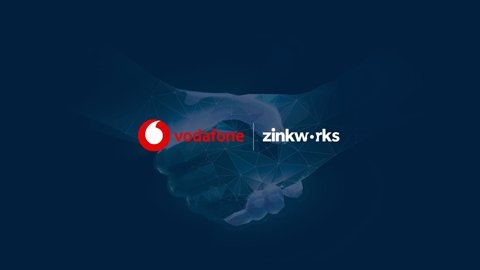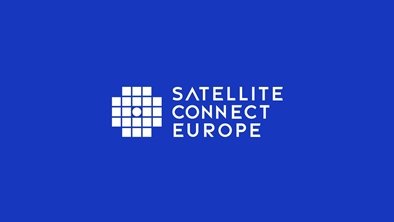Vodafone and Zinkworks partner to create AI platform to simplify and accelerate launch of new mobile network apps for customers
- New pan-European AI-driven platform to enable the launch of customer-focussed radio access network (RAN) applications within weeks, not months.
- Apps could boost network quality, automatically detect and resolve faults, reduce energy and save costs across all Vodafone markets.
- Platform will empower Vodafone engineers to develop apps in-house with potential to offer services to other industry players.
Vodafone and Zinkworks, an Irish-based technology company, today announced a partnership to develop a Generative AI-driven platform that will improve mobile service quality, network energy efficiency, and performance for Vodafone customers throughout Europe.
The central platform, called Rapid RIC, is expected to be fully operational by early 2026. It will combine Vodafone’s secure and reliable data analytics, an intuitive visual interface, and code-generating AI to enable engineers in multiple markets to more easily develop, deploy and monitor network software applications known as rApps. These applications negate the need to manually upgrade a mobile mast, instead enabling automatic and autonomous signal boosts based on customer needs, the remote detection and resolution of faults and the deactivation of unused links to save energy. Vodafone customers across all its markets will benefit from faster connectivity, fewer service interruptions, and improved signal quality in both high-demand and rural areas.
Vodafone and Zinkworks are combining forces to build the platform to take advantage of new software-driven 5G networks, particularly ones built using Open RAN technology, which promotes innovation by supporting a mix of hardware and software from different vendors at a mobile base station. Rapid RIC’s difference lies in the integration of the latest Gen AI software. Vodafone will own the platform, and it will use a Gen AI simulator to validate applications before use, eliminating the need for a more complex digital twin or central data repository.
Previously, building RAN applications required both radio engineering knowledge and software skills. This platform uses Gen AI to help radio engineers quickly and easily create apps within a secure in-house environment regardless of their AI and machine learning (ML) proficiency. By enabling teams to focus on the user experience of their rApps, free of technical intricacies such as model training, data preprocessing, and infrastructure management, Vodafone expects to be able to deploy new, higher quality features in 3-4 weeks, instead of months. Robust monitoring tools will be integrated into the platform, providing real-time insights into the performance and reliability of the rApps.
This initiative supports Vodafone’s strategy to lead the industry in network operational excellence by leveraging AI and automation at scale to enhance the customer experience. Applications such as validation and monitoring of new software and hardware developed with Rapid RIC will also be offered to other industry players. This is part of Vodafone’s plan to use its technical expertise and global operations to provide network engineering, validation, and consultancy services to third-party companies internationally.
Alberto Ripepi, Chief Network Officer, Vodafone, said: “We are working to simplify and accelerate the deployment of AI-powered applications that directly improve the customer experience. This platform allows us to focus on delivering a stronger, more reliable signal and greater network capacity while meeting our sustainability goals.”
Paul Madden, CEO of Zinkworks, added: “Our collaboration with Vodafone marks a major step forward in how Open RAN applications are developed and deployed. Our visual programme technology used to co-develop the new platform enables rapid innovation, faster service upgrades and better network responsiveness for users of Vodafone’s mobile networks.”
This platform is technologically innovative in many ways, including:
- In-house upskilling:The programming interface enables engineers to simply create a visual representation of an app using intuitive on-screen prompts and drag-and-drop functionality. The app is then automatically generated using AI and ML. This will reduce the need for external resources, driving down project costs, as well as encouraging engineers to learn new skills.
- Faster time to market: The companies anticipate cutting RAN application development and launch times by 60-70% using Gen AI for automated code.
- Operational excellence: A data simulator will quickly validate and ensure the quality of new rApps, as well as a function to proactively monitor their performance once installed. This simulator offers a balanced alternative between a data lake—which cannot provide feedback on untested radio tuning parameters—and a digital twin, which can be complex and resource-intensive.
- Scaled platform and wide geographical reach: The platform will leverage Vodafone’s existing data infrastructure, primarily on Vodafone’s own dedicated and secure Google Cloud Platform (GCP) data ocean. Vodafone employees can upload and monitor rApps to this private cloud, as well as launch them in multiple markets at the same time.
- Growth opportunities: The Rapid RIC platform will support Vodafone’s leadership in Open RAN innovation, enabling differentiation in the market, and where appropriate, the opportunity to resell an rApp such as network slicing to other industry players.
This partnership reflects Vodafone’s commitment to advancing Open RAN through its pioneering work at its dedicated R&D centre in Málaga, Spain, including greater integration between processing chipsets and the RAN. The Vodafone Zinkworks platform will incorporate many advanced features of a RAN Intelligent Controller (RIC), which supports rApps to allow network operators to manage and optimise RAN functions through AI and machine learning.
Initially, Vodafone engineers at the centre will develop two rApps. The first is an energy-saving application that automatically disables unused mobile connections. It will also address some current limitations with existing systems such as failing to reactivate cells properly, potentially degrading user experience. The second applications will use machine learning to fine-tune radio coverage parameters that are typically kept at default settings, improving overall network performance.
About Vodafone
Vodafone is a leading European and African telecoms company.
We serve over 355 million mobile and broadband customers, operating networks in 15 countries with investments in a further five and partners in over 40 more. Our undersea cables transport around a sixth of the world’s internet traffic, and we are developing a new direct-to-mobile satellite communications service to connect areas without coverage. Vodafone runs one of the world’s largest IoT platforms, with 215 million IoT connections globally, and we provide financial services to around 92 million customers across seven African countries – managing more transactions than any other provider.
From the seabed to the stars, Vodafone’s purpose is to keep everyone connected.
For more information, please visit www.vodafone.com follow us on X at @VodafoneGroup or connect with us on LinkedIn at www.linkedin.com/company/vodafone.
Contact details
Vodafone Media Relations:
Vodafone.com/media/contact [email protected]
Investor Relations:
Registered Office:
Vodafone House, The Connection, Newbury, Berkshire RG14 2FN, England. Registered in England No. 1833679

























